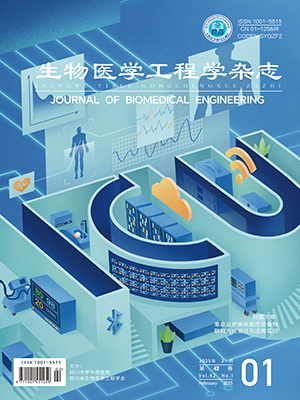| 1. |
Sujith P, Arjunan P, Iype T, et al. Correlation between depression and quality of life among patients with Parkinson's disease: an analytical cross-sectional study. Cureus, 2024, 16(2): e54736.
|
| 2. |
Weintraub D, Aarsland D, Chaudhuri K R, et al. The neuropsychiatry of Parkinson's disease: advances and challenges. Lancet Neurol, 2022, 21(1): 89-102.
|
| 3. |
Cong S, Xiang C, Zhang S, et al. Prevalence and clinical aspects of depression in Parkinson's disease: A systematic review and meta-analysis of 129 studies. Neurosci Biobehav Rev, 2022, 141: 104749.
|
| 4. |
Bang Y, Lim J, Choi H J. Recent advances in the pathology of prodromal non-motor symptoms olfactory deficit and depression in Parkinson's disease: clues to early diagnosis and effective treatment. Arch Pharm Res, 2021, 44(6): 588-604.
|
| 5. |
Liu X, Le W. Profiling non-motor symptoms in monogenic Parkinson's disease. Front Aging Neurosci, 2020, 12: 591183.
|
| 6. |
Kalinderi K, Papaliagkas V, Fidani L. Current genetic data on depression and anxiety in Parkinson's disease patients. Parkinsonism Relat Disord, 2024, 118: 105922.
|
| 7. |
李婷, 郑丽娜, 张叶, 等. S100钙结合蛋白β与α突触核蛋白与帕金森病患者抑郁及运动障碍的关系. 中华老年心脑血管病杂志, 2024, 26(4): 418-421.
|
| 8. |
Angelopoulou E, Bougea A, Paudel Y N, et al. Genetic insights into the molecular pathophysiology of depression in Parkinson's disease. Medicina (Kaunas), 2023, 59(6): 1138.
|
| 9. |
Liang R, Wang L, Li X, et al. Repetitive transcranial magnetic stimulation rescues simulated space complex environment-induced emotional and social impairments by enhancing neuronal excitability in the medial prefrontal cortex. Cereb Cortex, 2023, 33(11): 7148-7162.
|
| 10. |
Yin W, Li A, Yang B, et al. Abnormal cortical atrophy and functional connectivity are associated with depression in Parkinson's disease. Front Aging Neurosci, 2022, 14: 957997.
|
| 11. |
李俊驹, 李庆志, 胡佳豪, 等. 帕金森病丘脑底核脑深部电刺激器术中电极融合误差与抑郁改善关联性探究. 中华老年心脑血管病杂志, 2024, 26(10): 1167-1172.
|
| 12. |
Ahmad M H, Rizvi M A, Ali M, et al. Neurobiology of depression in Parkinson's disease: insights into epidemiology, molecular mechanisms and treatment strategies. Ageing Res Rev, 2023, 85: 101840.
|
| 13. |
Angelopoulou E, Stanitsa E, Karpodini C C, et al. Pharmacological and non-pharmacological treatments for depression in Parkinson's disease: an updated review. Medicina (Kaunas), 2023, 59(8): 1454.
|
| 14. |
Stocchi F, Angelo A, Barone P, et al. Exploring depression in Parkinson's disease: an Italian Delphi Consensus on phenomenology, diagnosis, and management. Neurol Sci, 2023, 44(9): 3123-3131.
|
| 15. |
Balasubramanian S, Mehmood K T, Al-Baldawi S, et al. Behind the mask: Parkinson's disease and depression. Cureus, 2024, 16(1): e52663.
|
| 16. |
Sampaio T B, Schamne M G, Santos J R, et al. Exploring Parkinson's disease-associated depression: role of inflammation on the noradrenergic and serotonergic pathways. Brain Sci, 2024, 14(1): 100.
|
| 17. |
屈明睿, 高冰冰, 苗延巍. 帕金森病伴抑郁在脑边缘系统结构及功能改变的MRI研究进展. 磁共振成像, 2023, 14(12): 127-131.
|
| 18. |
Wang Y, Liu H, Du X D, et al. Association of low serum BDNF with depression in patients with Parkinson's disease. Parkinsonism Relat Disord, 2017, 41: 73-78.
|
| 19. |
Aceves-Serrano L, Neva J L, Doudet D J. Insight into the effects of clinical repetitive transcranial magnetic stimulation on the brain from positron emission tomography and magnetic resonance imaging studies: a narrative review. Front Neurosci, 2022, 16: 787403.
|
| 20. |
Mosilhy E A, Alshial E E, Eltaras M M, et al. Non-invasive transcranial brain modulation for neurological disorders treatment: a narrative review. Life Sci, 2022, 307: 120869.
|
| 21. |
Somaa F A, de Graaf T A, Sack A T. Transcranial magnetic stimulation in the treatment of neurological diseases. Front Neurol, 2022, 13: 793253.
|
| 22. |
Cheng B, Zhu T, Zhao W, et al. Effect of theta burst stimulation-patterned rTMS on motor and nonmotor dysfunction of Parkinson's disease: a systematic review and metaanalysis. Front Neurol, 2022, 12: 762100.
|
| 23. |
King E S, Tang A D. Intrinsic plasticity mechanisms of repetitive transcranial magnetic stimulation. Neuroscientist, 2024, 30(2): 260-274.
|
| 24. |
Zhuang S, Wang F Y, Gu X, et al. Low-frequency repetitive transcranial magnetic stimulation over right dorsolateral prefrontal cortex in Parkinson's disease. Parkinsons Dis, 2020, 2020: 7295414.
|
| 25. |
Zheng H B, Liu B, Shen J, et al. Non-invasive brain stimulation for treating psychiatric symptoms in Parkinson's disease: a systematic review and meta-analysis. J Clin Neurosci, 2022, 106(5): 83-90.
|
| 26. |
王丽娟, 聂坤, 高玉元, 等. 中国帕金森病重复经颅磁刺激治疗指南. 中国神经精神疾病杂志, 2021, 47(10): 577-585.
|
| 27. |
Wang Y, Ding Y, Guo C. Assessment of noninvasive brain stimulation interventions in Parkinson's disease: a systematic review and network meta-analysis. Sci Rep, 2024, 14(1): 14219.
|
| 28. |
Chen J, Xu P, Guo X, et al. Comparative analysis of the effects of escitalopram, pramipexole, and transcranial magnetic stimulation on depression in patients with Parkinson disease: an open-label randomized controlled trial. Clin Neuropharmacol, 2022, 45(4): 84-88.
|
| 29. |
Jiang S, Zhan C, He P, et al. Neuronavigated repetitive transcranial magnetic stimulation improves depression, anxiety and motor symptoms in Parkinson's disease. Heliyon, 2023, 9(8): e18364.
|
| 30. |
Lesenskyj A M, Samples M P, Farmer J M, et al. Treating refractory depression in Parkinson's disease: a meta-analysis of transcranial magnetic stimulation. Transl Neurodegener, 2018, 7: 8.
|
| 31. |
韩昱, 白抚生, 张顺, 等. 高频重复经颅磁刺激治疗帕金森病非运动症状的疗效观察. 中国实用内科杂志, 2023, 43(4): 318-321.
|
| 32. |
Fregni F, Ono C R, Santos C M, et al. Effects of antidepressant treatment with rTMS and fluoxetine on brain perfusion in PD. Neurology, 2006, 66(11): 1629-1637.
|
| 33. |
Zhang W, Deng B, Xie F, et al. Efficacy of repetitive transcranial magnetic stimulation in Parkinson's disease: a systematic review and meta-analysis of randomised controlled trials. EClinical Medicine, 2022, 52: 101589.
|
| 34. |
Makkos A, Pál E, Aschermann Z, et al. High-frequency repetitive transcranial magnetic stimulation can improve depression in Parkinson's disease: a randomized, double-blind, placebo-controlled study. Neuropsychobiology, 2016, 73(3): 169-177.
|
| 35. |
田祥奇, 王皓, 徐新荣, 等. 超低频经颅磁刺激对帕金森病睡眠障碍患者的疗效观察. 山东大学学报(医学版), 2022, 60(12): 19-25.
|




